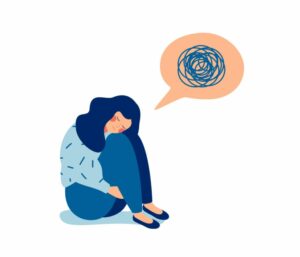Negative attitudes can be destructive and demoralizing. They manifest in our daily life happenings to sap our energy and make us feel bad about ourselves. Not only that, but they also hurt our interactions with others. In this blog post, we will discuss what is a negative attitude, its types, and examples, as well as how to overcome them.
Contents
What Is Negative Attitude?

Negative attitude is a general term that refers to a constellation of thoughts, feelings, and behaviors that are harmful and destructive. These attitudes develop over time due to a variety of reasons such as past trauma, betrayal, negative experiences, etc., and tend to stay in an individual’s mind for a long time. This can also result in a lot of disturbances which can have severe effects on someone’s present life. People with overly negative attitudes are commonly referred to as ‘pessimists’.
Types of Negative Attitudes
Negative attitudes are present in very intangible yet evident ways of behavior. Some commonly noted behaviors are commonly known as
Negative Self Talk
involves talking to oneself in a destructive and harmful way. This can also involve making negative statements and harsh self-criticism.
Passive Aggression
is a behavior where someone tries to harm someone else by being indirect and passive.
Anger
is a type of emotion that can be very destructive. When someone is angry, they often feel out of control and like they need to lash out at someone or something.
Resentment
is a feeling of anger or bitterness directed at someone who has harmed us, wronged us, or treated us unfairly. Resentment can lead to hostility and aggression, as well as feelings of envy and entitlement.
Hostility
is an intense dislike or cold-heartedness for someone. It can moreover manifest as verbal abuse, physical violence, or even murder.
Bitterness
is a deep-seated resentment that leads to negative thoughts and feelings about the person or event that caused it. Bitterness can also make it difficult to have positive relationships with others.
Cynicism
is a belief that people are inherently selfish and dishonest. Cynical people also tend to be distrustful and pessimistic about the world around them.
Withdrawal
from others is when we isolate ourselves from the people around us. This can be done physically, by withdrawing from social activities, or emotionally, by shutting down our feelings and moreover refusing to communicate with others.
Blaming others
is when we feel like it’s always someone else’s fault. We never take responsibility for our actions, and moreover, always look for someone to blame.
Skepticism
is when we question everything and don’t believe anything without proof. Skeptical people are also very critical and cynical about the world around them.
Disempowerment
is when we feel like we can’t do anything to change our situation. This further leads to a feeling of victimization and helplessness.
Examples Of Negative Attitude

Let’s take a look at some examples and how these attitudes manifest themselves in our daily life events. These can be observed in instances such as:
Negative self-talk
- Making statements such as “I’m not good enough,” “I’m a failure,” and “I can’t do anything right.”
- Assuming everybody thinks the worst of you.
- Downplaying or disregarding compliments.
Passive aggression
- Ignoring someone when they’re talking
- Deliberate procrastination
- Talking behind others’ backs
Anger
- Being verbally aggressive by yelling or cussing
- Getting physically violent
- Throwing temper tantrums
Resentment
- Feeling bitter towards someone who has hurt us in the past.
- Holding grudges
Hostility
- Wanting to harm someone
- Having intensely negative thoughts about a person/situation
Bitterness
- Feeling unhappy at someone’s success
- Being unable to forgive or forget
Cynicism
- Having a hard time seeing someone’s positive traits
- Perceiving everything in a negative light
- Avoiding social interactions
- Not answering phone calls/texts
- Cutting off social/professional ties without a valid explanation
Blaming others
- Not owning up to your mistakes
- Avoiding saying sorry
- Manipulation
Disempowerment
- Having a victim mentality
- Self-pity
- Belittling yourself
Effects Of Negative Attitude

Now that we know what a negative attitude is and how it can manifest itself, let’s take a look at the effects it has on our lives.
- Rising conflicts and misunderstandings in relationships
- Loss of interest in academic/work obligations
- Poor sense of self
- Inability to establish boundaries
- Disturbances in sleeping patterns
- Risk of developing an addiction as a coping mechanism
- Further increased vulnerability to mental health disorders like anxiety
- Decreased productivity
- Physical symptoms such as headaches, digestion problems, chest pains, and constant sweatiness, among others
Overcoming Negative Attitudes
There are a lot of things that you can do to overcome negative attitudes. These include:
- Recognize and accept your negative attitudes before planning to work on them.
- Seek help from a mental health professional. They can help you understand the root cause of such attitudes and further strategically plan to minimize their negative effects.
- Talk to yourself the way you would talk to a loved one. Realize the intensity of your words and actions and how they could affect your, and also others, emotional outlook.
- Exercise or engage in physical activity. Exercise releases endorphins, which also improve your mood and make you feel happier.
- A sound sleep ensures mental and emotional relaxation, hence cutting down on negative thoughts.
- Spend time around positive people. People who are optimistic and happy tend to furthermore influence those around them positively.
- Keep track of your thoughts and behaviors. This can moreover be done through journaling or practicing mindfulness.
- Indulge in taking healthy risks. Challenge your thoughts and reservations and further try to open yourself up to new possibilities.
Conclusion
Negative attitudes can be very destructive and harmful. They can lead to anger, resentment, violence, as well as social isolation. However, they can also be overcome with some effort. By recognizing the different types of negative attitudes, you can moreover start to challenge and replace the thoughts and feelings that contribute to them. In addition, exercise, positive social interaction, and skepticism can help to keep negative attitudes at bay.
A Word From Therapy Mantra
Your mental health — Your psychological, emotional, and social well-being — has an impact on every aspect of your life. Positive mental health essentially allows you to effectively deal with life’s everyday challenges.
At TherapyMantra, we have a team of therapists who provide affordable online therapy to assist you with issues such as depression, anxiety, stress, workplace Issues, addiction, relationship, OCD, LGBTQ, and PTSD. You can book a free therapy or download our free Android or iOS app.


